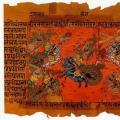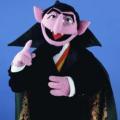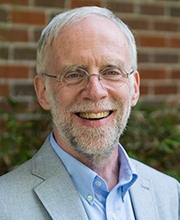26. Francis Clooney on Vedanta
Francis Clooney joins us to discuss the religious and philosophical aspects of Vedānta.
Themes:
• F.X. Clooney, “Why the Veda Has No Author: Language as Ritual in Early Mīmāṃsā and Post-Modern Theology,” Journal of the American Academy of Religion 55 (1987), 659-84.
• F.X. Clooney, Thinking Ritually: Rediscovering the Pūrva Mīmāṃsā of Jaimini (Vienna: 1990).
• F.X. Clooney, “Binding the Text: Vedānta as Philosophy and Commentary,” in J.R. Timm (ed.), Texts in Context: Traditional Hermeneutics in South Asia (Albany: 1991), 47–68.
• F.X. Clooney, Theology after Vedanta: An Experiment in Comparative Theology (Albany: 1993).
• F.X. Clooney, Comparative Theology: Deep Learning across Religious Borders (Malden: 2010).
• F.X. Clooney, His Hiding Place Is Darkness: A Hindu-Catholic Theopoetics of Divine Absence (Stanford: 2013).







Comments
A coincidence?
Thanks for this episode!
The debate about the need for ritual in attaining a higher reality reminds of the later (shariatic so to speak) Sufis' insistence on ritual performance of Islamic laws and its importance instead of transgressing them in the quest of union. Shah Wali Allah for instance builds some of his works around this idea of the inherent necessity of comforming to Sunna rituals. Is this a mere coincidence between two major religious traditions or could there have been a reception by these later Sufis?
In reply to A coincidence? by Johannes
Mysticism
Great question! That "antinomian" tendency is found in many, maybe all, mystical traditions - the idea that one can transcend the strictures of religious practice or even morality by virtue of oneness with God. In the medieval series, a similar idea is coming up in Marguerite Porete who I'm covering in an episode soon. In this case, I don't know that Shah Wali Allah was influenced by these early Indian thinkers but Dara Shikuh was - he saw a deep agreement between Sufism/Islam more generally and early Hindu thought, such as the Upanisads. However I think he probably wouldn't embrace antinomianism.
Hermeneutic challenge
"When two spiritual cultures meet, a hermeneutic challenge is born. The fate of each one of those cultures depends upon how one interprets the other's symbolic language. As in an individual's dream, so in a collective dream of our life in this world, there are signs to be interpreted and integrated into our consciousness. It appears that from the nineteenth century onwards the hermeneutic challenge before the Hindus and Muslims of India consisted of two options - one literal, closed and mutually destructive, and the other, symbolic, open-ended and mutually constructive. Through India's long history, the latter option has enjoyed wide currency, allowing the traditions of the country to flourish." (The Life & Teachings of a Sufi Master - Prof Syed Hasan Askari 1932-2008)
On theology and philosophy
Thanks for this very interesting interview.
Concerning Mīmāṃsā and Vedānta as theologies, I agree if the point is to show that Mīmāṃsā (though atheist!) accepts an Absolute (the Vedas) and I am sure that for F. Clooney being a theology is a positive assesment. Nevertheless, I wonder if such a claim could not be misunderstood or misused by people (like Nicholas Tampio, here) trying to develop a normative idea of what philosophy is and should be. What do you think?
In reply to On theology and philosophy by elisa freschi
Theology and philosophy
Yes, that's a good point. I tend to think that Vedanta is in as much danger of not being "real" theology as of not being "real" philosophy - this especially goes for Advaita, which was even attacked by other Vedantins for undermining certain specifically religious aspects of Vedic tradition. The real challenge that both branches of Mimamsa present is, to my mind, that it is so difficult to classify them as religious vs philosophical traditions, which if we think about it should encourage us to avoid seeing these as mutually exclusive alternatives.
But Elisa you are much more expert than I am so I would like to know what you think too!
In reply to Theology and philosophy by Peter Adamson
theology and philosophy
I forgot to mention that I discussed the risks of such attempts in a blogpost, here.
Shankara and Buddhism
i found the comparison of Shankara with Buddhist thinkers was quite interesting, and it reminded me of Aurobindo's criticisms of both Shankara and Buddhism in the "Life Divine" and elsewhere- not necessarily that they skirted ritual orthodoxy, but that they overemphasized the ideal of the ascetic world renouncer, and in effect degraded the status and attention toward the more worldly aspects of life, which I suppose rituals would be part of. I also wanted to make a formal plug for including Aurobindo in the Indian Hopwag series. He is early 20th century, and on par with Gandhi as a figure in Indian independence and, in my view, much more interesting philosophically. I would think Jonardon would know of him, but other scholars specializing in Aurobindo's work are: Stephen Phillips (Hawaii), Robert McDermott and Debashish Banerjee (CIIS). love the podcast. cheers.
In reply to Shankara and Buddhism by Nicholas Collins
Aurobindo
Great, thanks for the suggestion. I'm not sure when/if we will get to 20th century Indian thought since the current series on India is really only going to go up through late antiquity, but I hope we'll return for later Indian philosophy in a future series of episodes.
fantastic transformation of an overpaid superfluous actor
Wow George Clooney is a somehow always good for a surprise ! I did not know he is also in Indian religion and philosophy, because he is anyway a bad actor. He also doesn't look so smug anymore ! I like it
Add new comment